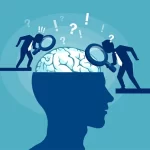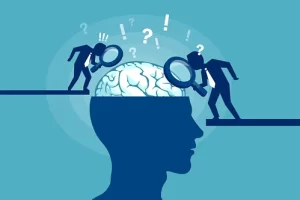To prevent and alleviate the symptoms of autumnal asthenia, it is important to maintain maximum energy levels, which is achieved by adopting a healthy lifestyle:
Healthy and balanced diet. Food must provide all the necessary nutrients for the body’s proper functioning and strengthen the immune system. A healthy diet should be rich in fruits and vegetables, moderate in protein, and low in sugars, sodium, and saturated fat. It is important to moderate the consumption of alcohol and other stimulants, such as caffeine. Increase your intake of fresh, seasonal foods and avoid ways of cooking that add unnecessary calories.
Restful sleep. It is advisable to advance bedtime and get up a little earlier than usual to take advantage of the daylight hours. In addition, it is essential to sleep a sufficient number of hours and that these are of quality. To do this, we must follow some sleep hygiene measures such as going to bed and getting up always at the same time. It is also recommended not to use mobile devices before sleeping, like having a light dinner at least two hours before bed.
Physical exercise. It is recommended to do moderate physical activity every day, as it increases the secretion of endorphins, neurotransmitters that increase the feeling of well-being and improve mood.
Increase exposure to sunlight. Most people are forced to exercise in the afternoon or even at night when they leave work. It will be important to adapt the time dedicated to exercise to take advantage of the daylight hours during the winter hours. It is advisable to do it outdoors first thing in the morning, at noon or in the middle of the afternoon.
Is drug treatment necessary?
Autumnal asthenia does not usually need pharmacological treatment since the symptoms diminish with the passing of days. If symptoms persist or worsen, a doctor should be consulted to see any other underlying pathology that needs to be treated, such as depression. Likewise, it is important to distinguish autumnal asthenia from so-called seasonal affective disorder.
It is a persistent depression associated with seasonal changes. It usually begins in the fall and worsens in winter. It tends to disappear in the spring and summer months (times when it is less frequent). Your treatment may include phototherapy, the use of medications, psychotherapy, and lifestyle changes.
The clearest symptoms of this temporary disorder are the following:
Exhaustion, even if you have not made any effort.
Drowsiness.
Low spirits.
Headaches are common.
Also, difficulty concentrating.
And, sometimes, decreased libido.
There are usually no physical symptoms such as fever, but there is a greater predisposition to infection.
How to adjust your biological clock
The reduction of daylight hours and the return to common cause a biological disorder in your body that disappears when it is regulated again. To help you do this, but these tips into practice:
Now more than ever, try to sleep well
Your fatigue is partly due to the daylight saving time mismatch, which messes up your internal clock. To get it back to normal, try to sleep 8 hours and maintain regular hours: go to bed and get up simultaneously and try not to stay up late. Do the same on the weekend.
On the weekend, you don’t have to “catch up on sleep.”
How you sleep also counts. Do it completely in the dark because that way, you favour the production of melatonin, which induces sleep.
The light of computers, tablets or mobile phones before sleeping alters the secretion of melatonin and delays falling asleep. Avoid them.
Exercise for half an hour every day
The benefits are many: by doing so, you generate endorphins, which is why it helps you overcome apathy; you get muscle tone and background, which makes your body more resistant to fatigue; and you eliminate toxins, and you feel lighter.
Postures that relax you before going to bed
If you have stopped exercising in the summer or have never done so, start walking briskly for half an hour a day.
“Manufactures” serotonin by sunbathing.
The reduction of hours of sunshine is the main culprit of the fall “crash” because you produce less serotonin. To increase the levels, sunbathe every day for 10 minutes better in the morning, and thus you will charge yourself with vitality.
Sunbathing for 10 minutes in the morning helps to ‘charge’ you with energy.
A phototherapy is also a good option if you feel depressed. It involves exposing yourself for half an hour in front of a special lamp that emits light similar to natural light. If you have trouble getting up in the morning, a morning dose will help regulate your internal clock.
Make an effort to see things in the positive.
The feeling of being overwhelmed stressed, and unable to handle everything when the holidays are over would not exist if the return to routine were not seen as negative. That is what the experts say.
Approach the return as if you started something new, and you will cope better. Mind you, give yourself some time to get back to normal. You do not want to resume all activities at once. And if stress overcomes you, practice a relaxation technique.
Six nutrients to lift your spirits
Tryptophan is the essential nutrient to overcome the slump at this time of year, but there is also other key “allies” that you should include in your diet to gain energy and deal with fall asthenia.
Tryptophan: It is an essential amino acid key to the manufacture of serotonin, which turns into melatonin at night and helps you sleep well. And it is only obtained through food, so you must include it in your menus. It is found in eggs, dairy, fish, meats, legumes (soy), nuts and fruits (banana, pineapple and avocado).
Iron: The lack of this mineral causes tiredness, dizziness and lack of concentration. The foods richest in iron are shellfish (cockles, clams and the like), meat, fish and legumes. If you take them in combination with vitamin C, iron is better absorbed.
Vitamin B6: It is necessary to transform tryptophan into serotonin. Its lack can cause asthenia and nervousness. Vitamin B6 is found in wheat germ, oily fish, nuts, legumes, whole grains, and brewer’s yeast.
Vitamins A, C and E: They provide antioxidants, the absence of which causes oxidative stress that causes continuous asthenia. Fruits, vegetables and greens contain them.
Omega 3 and Omega 6: These fats make up 30% of the lipid structure of the brain, so they are key to the “health” of your neurons and the proper functioning of the nervous system. Oily fish is rich in omega three and sunflower and corn oil in 6.
Carbohydrates: Glucose is the “fuel” of the brain. And to achieve the optimal amount, the intake of complex carbohydrates (bread, rice and better whole pasta) and simple carbohydrates (fruits, sugar, honey) is necessary, giving preference to the complexes, which provide you with energy gradually to avoid dips and avoid spikes in blood sugar.

















Add Comment